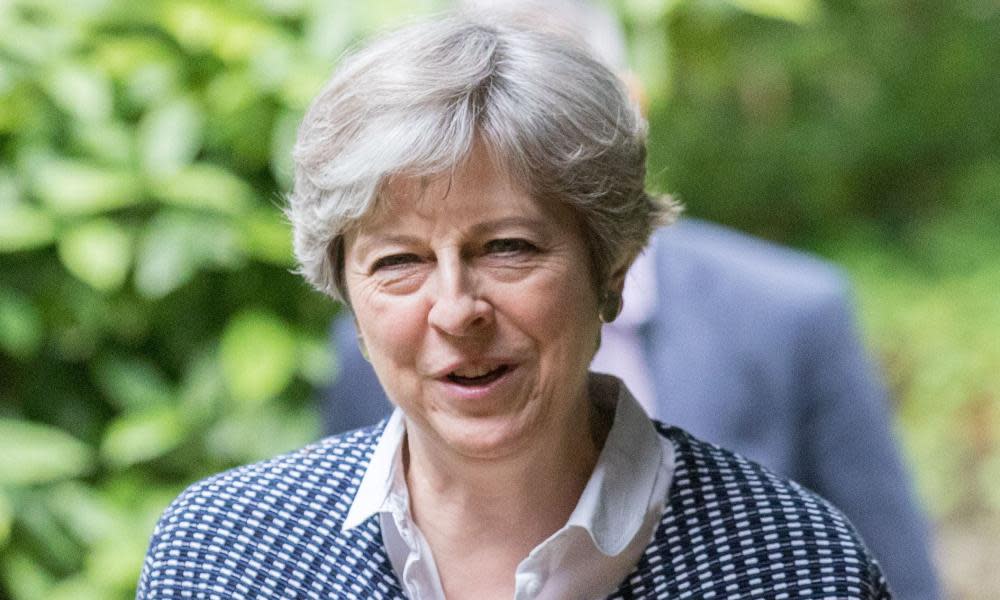Theresa May: Tories have been wrong on gay rights in the past

Theresa May has said the Conservative party has been “wrong” on gay rights in the past, although she said she was proud of the role it had played in recent years.
The prime minister made the statement in an article for the website PinkNews to mark 50 years since the partial decriminalisation of homosexuality in England and Wales.
She said: “I am proud of the role my party has played in recent years in advocating a Britain which seeks to end discrimination on the grounds of sexuality or gender identity, but I acknowledge where we have been wrong on these issues in the past.”
May added: “There will justifiably be scepticism about the positions taken and votes cast down through the years by the Conservative party, and by me, compared to where we are now.”
In 1998 May voted against a bill to reduce the age of consent for homosexual acts from 18 to 16, and in 2002 she voted against a measure allowing gay couples to adopt.
In her political career May has been absent for a series of votes affecting LGBT rights, although she backed civil partnerships in 2004. In 2014 she voted to make same-sex marriage available to armed forces personnel outside the UK.
Other former prime ministers, including David Cameron and Tony Blair, also contributed to the PinkNews article. Cameron wrote: “We’re still on that road and, of course, more needs to be done, particularly on the vital task of working internationally to change laws and attitudes.”
The Labour leader, Jeremy Corbyn, wrote that “much more needs to be done to tackle homophobia in our society. Homophobic hate crime must be treated as seriously as hate crime based on race and faith, by being made an aggravated offence.”
Discussing strides made towards equality, Corbyn wrote: “I am proud of the role the Labour party played in these advances, by equalising the age of consent, introducing the Equality Act, equalising adoption laws and legislating for civil partnerships for same-sex couples. Labour also repealed the deplorable section 28 in 2003.”
The Sexual Offences Act received royal assent on 27 July 1967. It stated that “a homosexual act in private shall not be an offence provided that the parties consent thereto and have attained the age of 21 years”. It has been called the decriminalisation of homosexuality.
In September 2016 the government announced an amendment, known as the Turing law because of the pardoning of the second world war code-breaker Alan Turing. It led to tens of thousands of men being cleared of offences that would not be crimes today.

 Yahoo News
Yahoo News 
